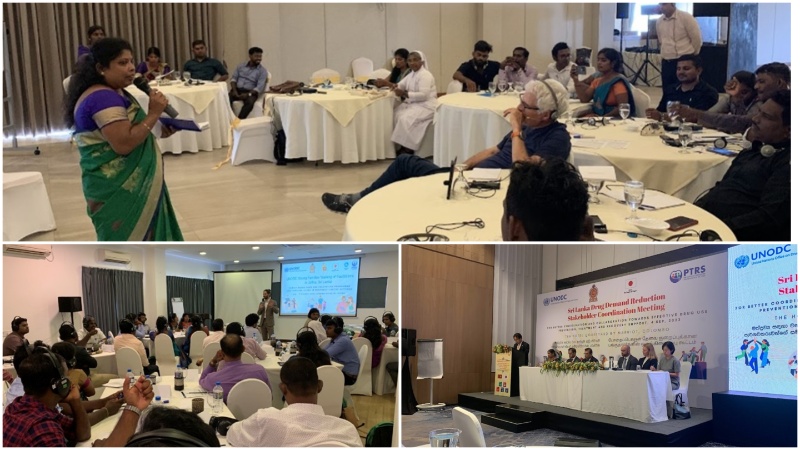Sri Lanka: UNODC rolls out groundbreaking drug use prevention strategies and capacity building of stakeholders

Colombo, Sri Lanka/15 July 2024: In the face of escalating drug abuse challenges, the government of Sri Lanka, in collaboration with UNODC, has embarked on a transformative journey to combat the widespread impact of addiction, with support of Japan.
Drug use disorders, a pressing issue globally, have particularly strained Sri Lanka’s public health and security systems, affecting its youth and communities. Sri Lanka has witnessed a troubling rise in drug-related issues, with a 13% increase in arrests for drug offenses during the 2022 economic crisis, totaling 152,979 individuals. The infiltration of narcotic drugs like cannabis, heroin, cocaine, and prescription medications has significantly impacted adolescents and young adults, including school-aged children. Despite these alarming statistics, there has been a notable shortage of effective prevention and treatment programs, leading to high relapse rates due to the chronic, relapsing nature of drug use disorders.
Recognizing the urgency, UNODC has been at the forefront, driving efforts to enhance drug demand reduction strategies in the country with community-based prevention and treatment programs starting in 2023. This approach aims to ensure wider availability of services while moving away from long-term, involuntary residential treatment centers.
A cornerstone of this initiative has been the training of 280 national trainers, facilitators, coordinators, and practitioners on evidence-based prevention and treatment programs. Additionally, over 600 stakeholders, both national and international, have been educated on science-based, human-rights-oriented, and age- and gender-responsive approaches, aligning with the UNODC-WHO International Standards on Drug Use Prevention and Treatment.
Stakeholders from Colombo and neighbouring districts such as Ampara, Anuradhapura, Batticaloa, Badulla, Galle, Gampaha, Jaffna, Kalutara, Kandy, Kegalle, Kilinochchi, Kurunegala, Matara, Manner, Negombo, Trincomalee, Vavuniya have been engaged and trained.
In collaboration with the NDDCB and national/international consultants, UNODC is also assisting implementation of drug use survey using indirect estimation method in order to obtain updated burdens of drug use with attention to methamphetamine in 2024.
In partnership with the National Dangerous Drugs Control Board (NDDCB) and other consultants, UNODC is also facilitating a drug use survey using indirect estimation methods to update the understanding of drug use burdens in Sri Lanka, with a particular focus on methamphetamine. This comprehensive approach ensures that the strategies remain relevant and effective in addressing the evolving drug abuse landscape.
The collaborative efforts are laying the groundwork for a more resilient and informed approach to drug demand reduction in the future. Through these sustained efforts, Sri Lanka is making strides towards a healthier, safer future for its people, showcasing the power of international cooperation and evidence-based solutions in the fight against drug use.
The activity contributed to SDG3, SDG 16 and SDG 17: https://sdg-tracker.org/
(Supported by Government of Japan)